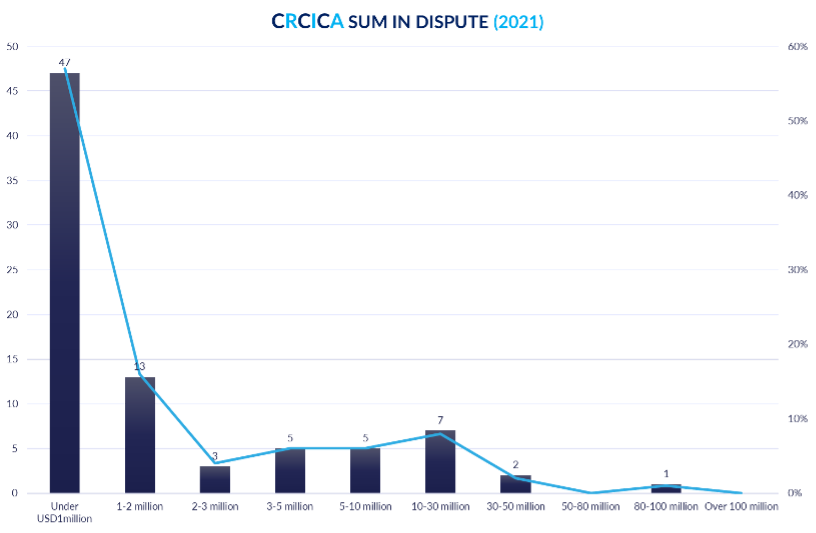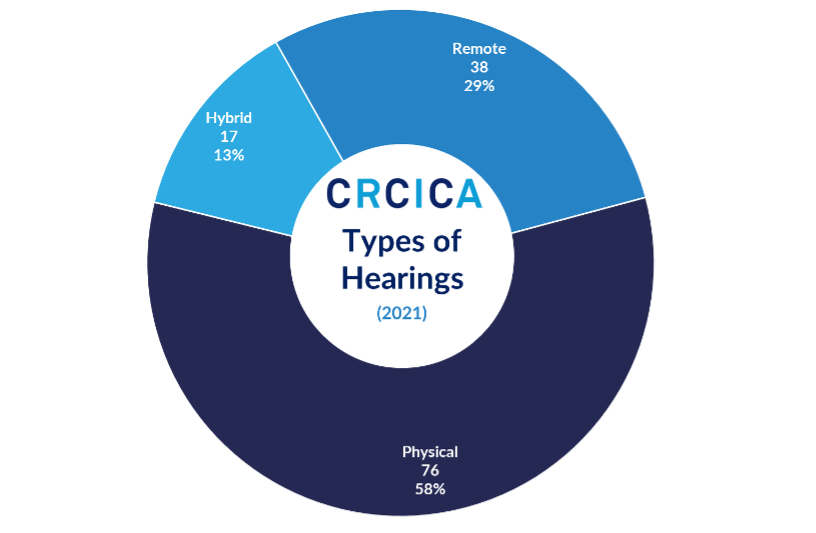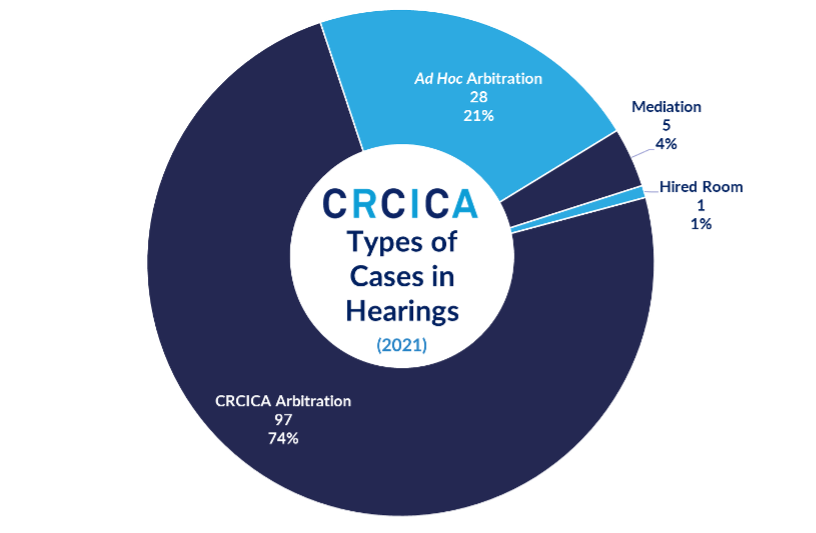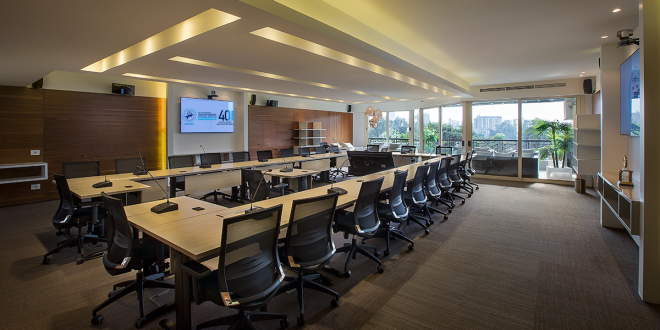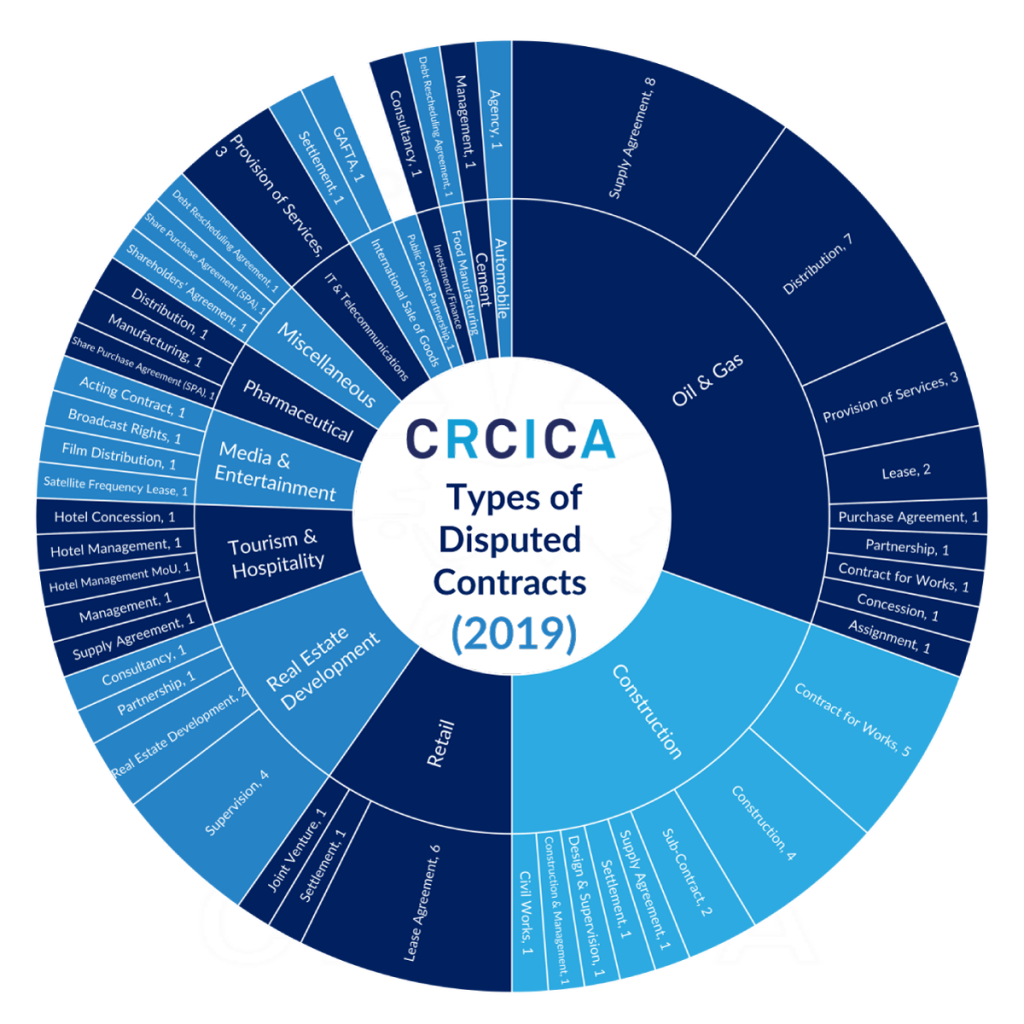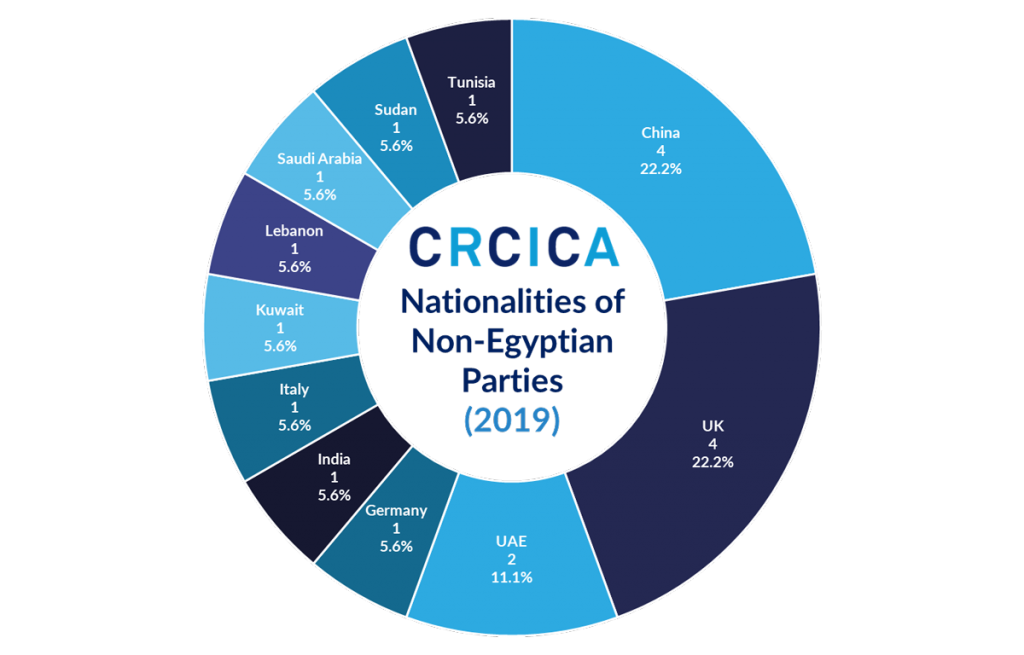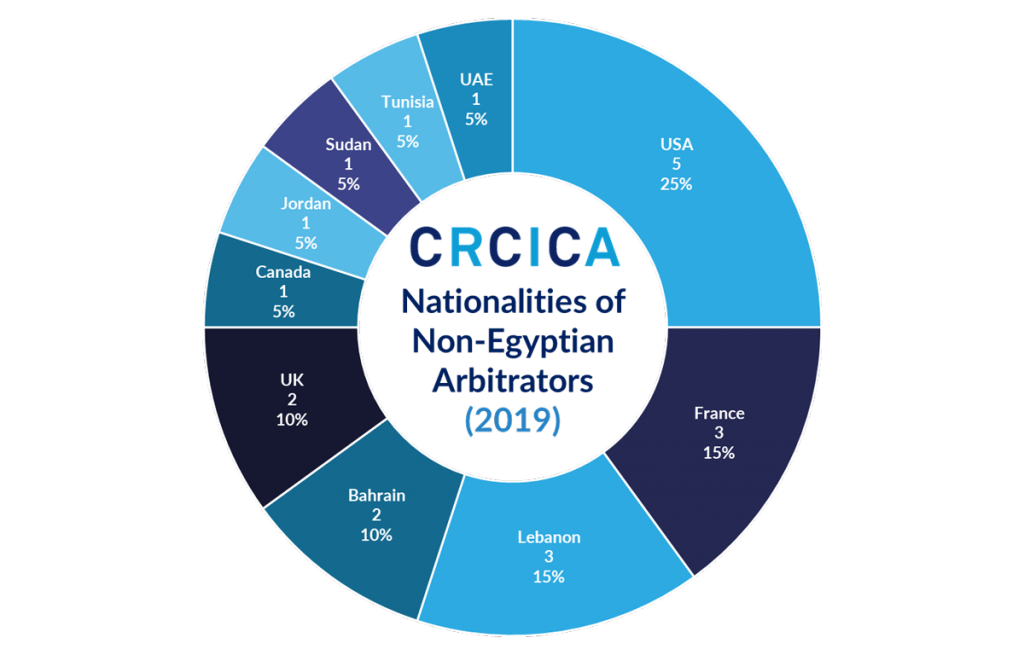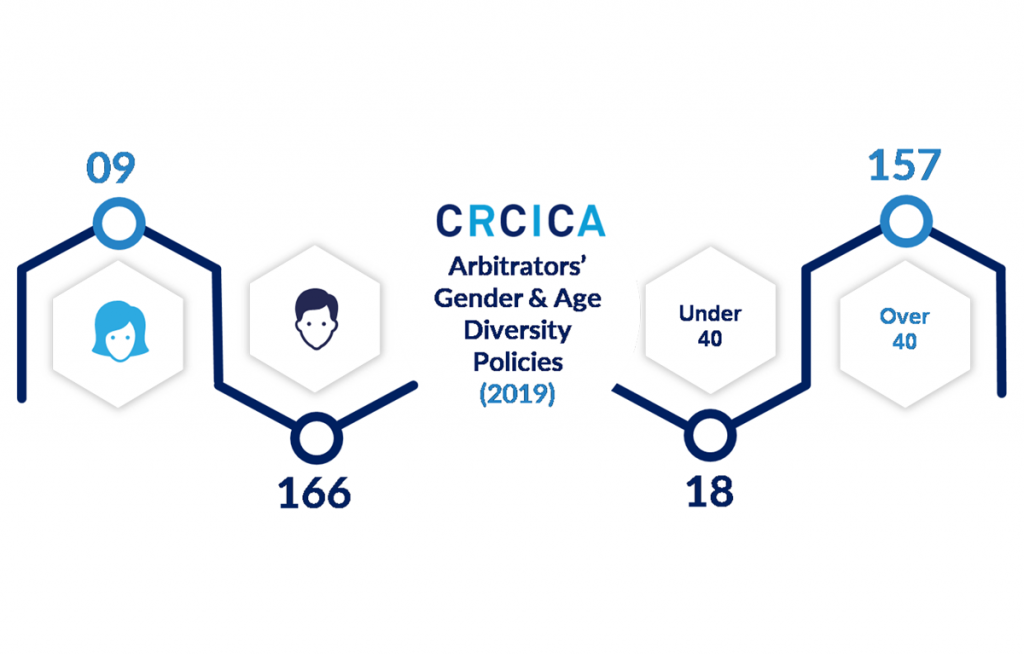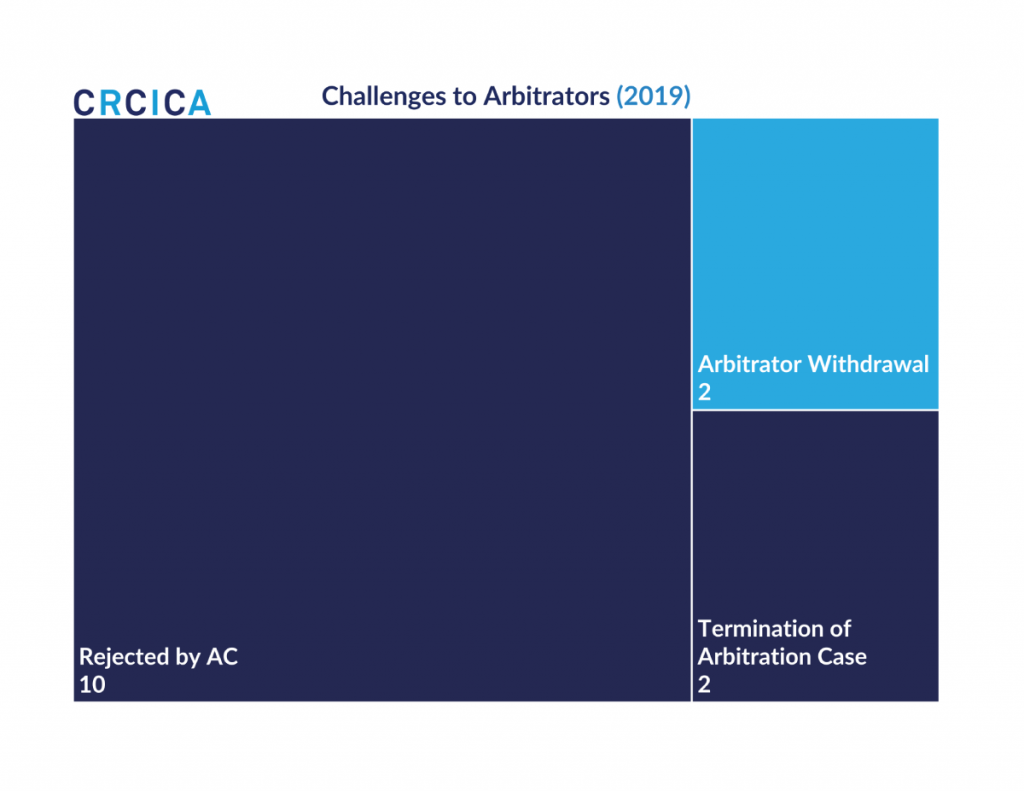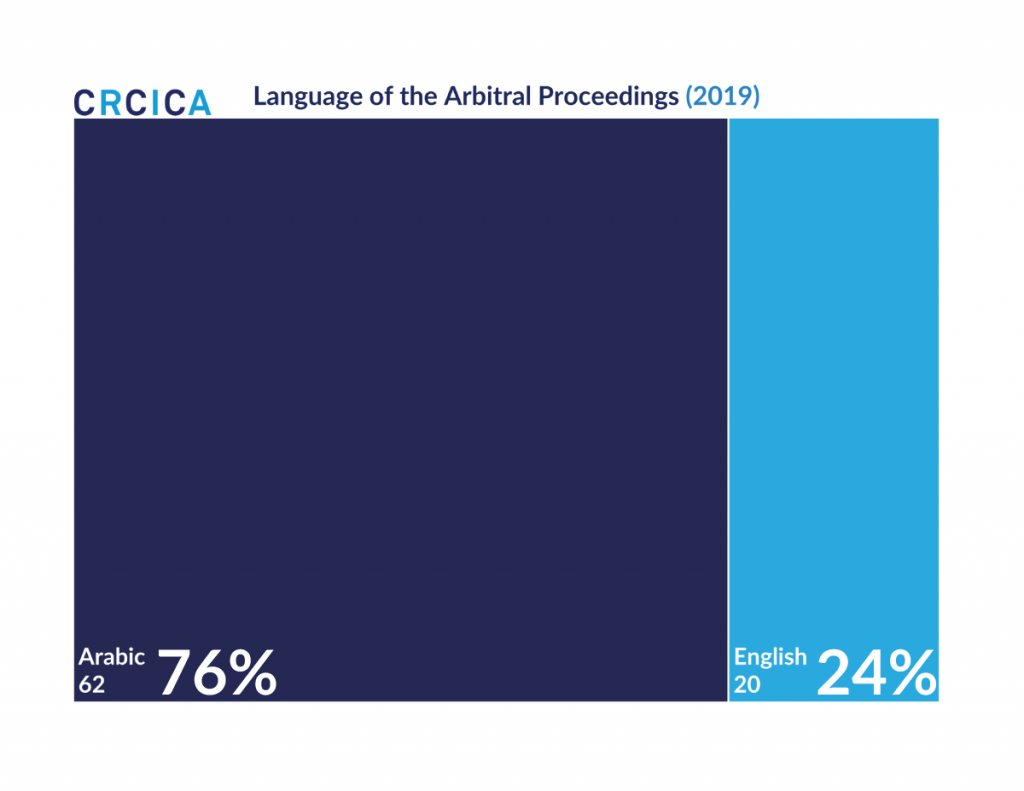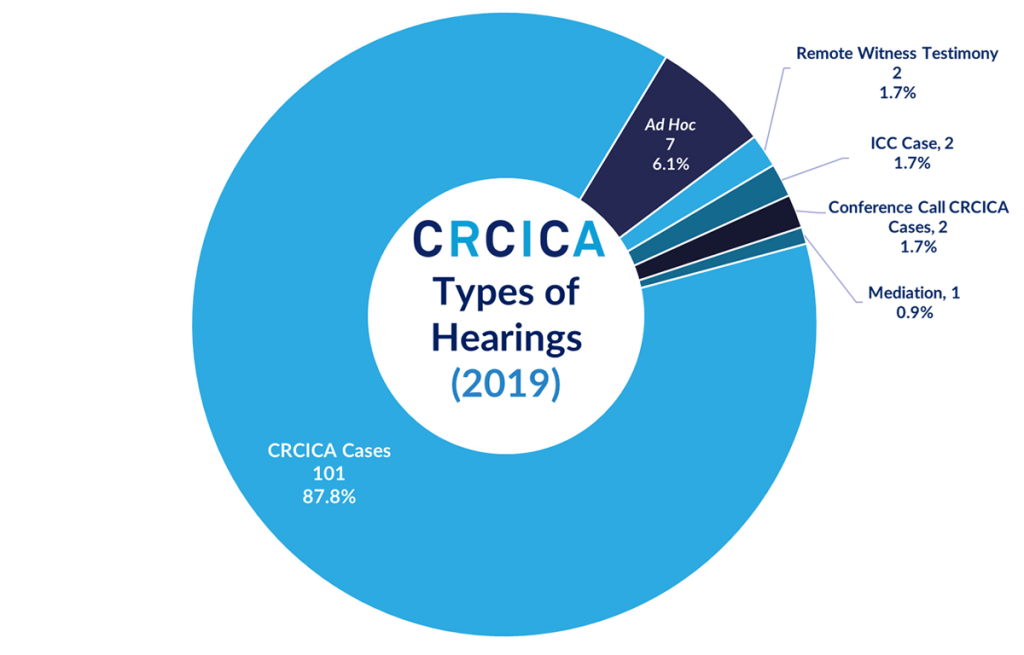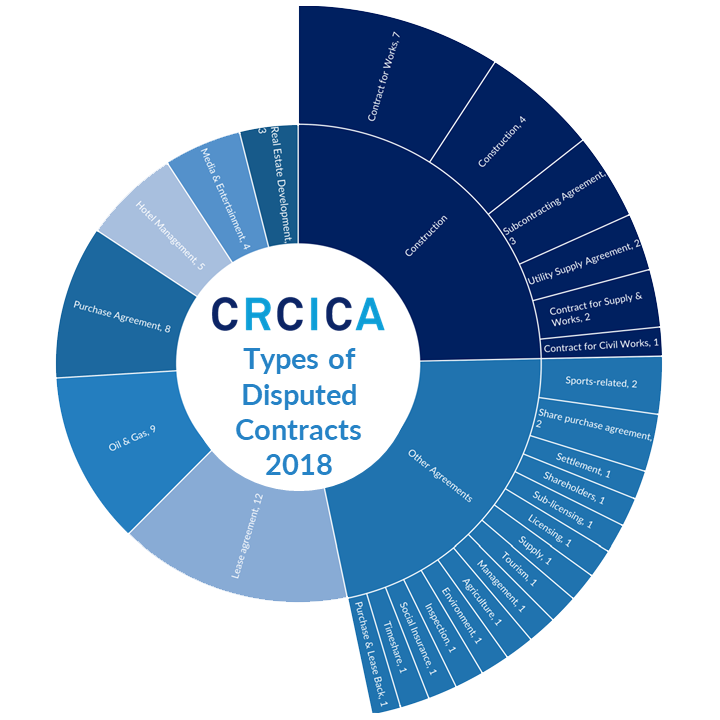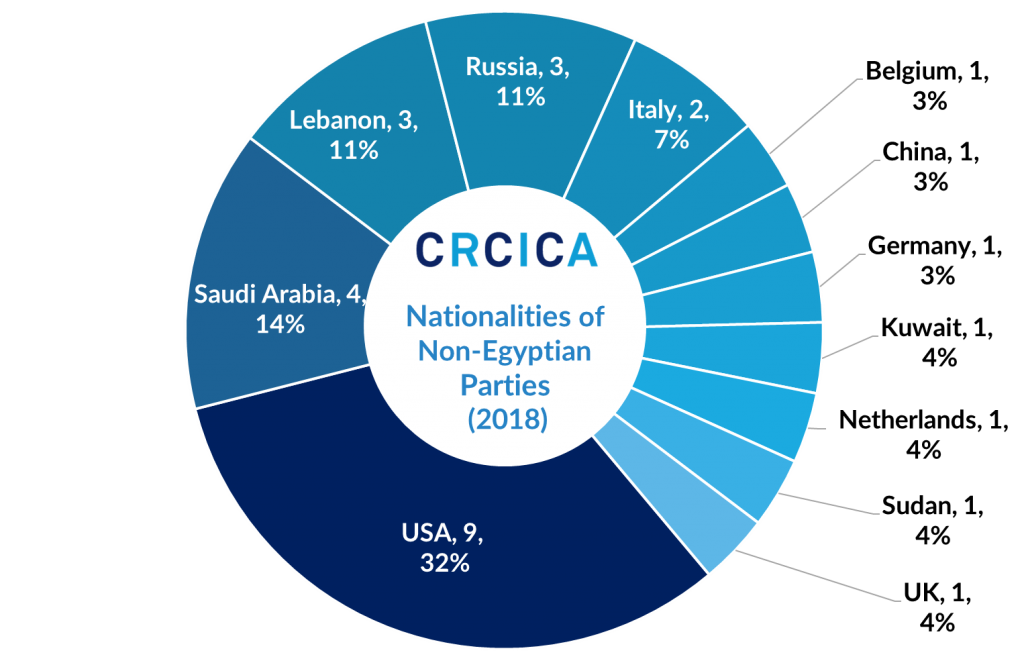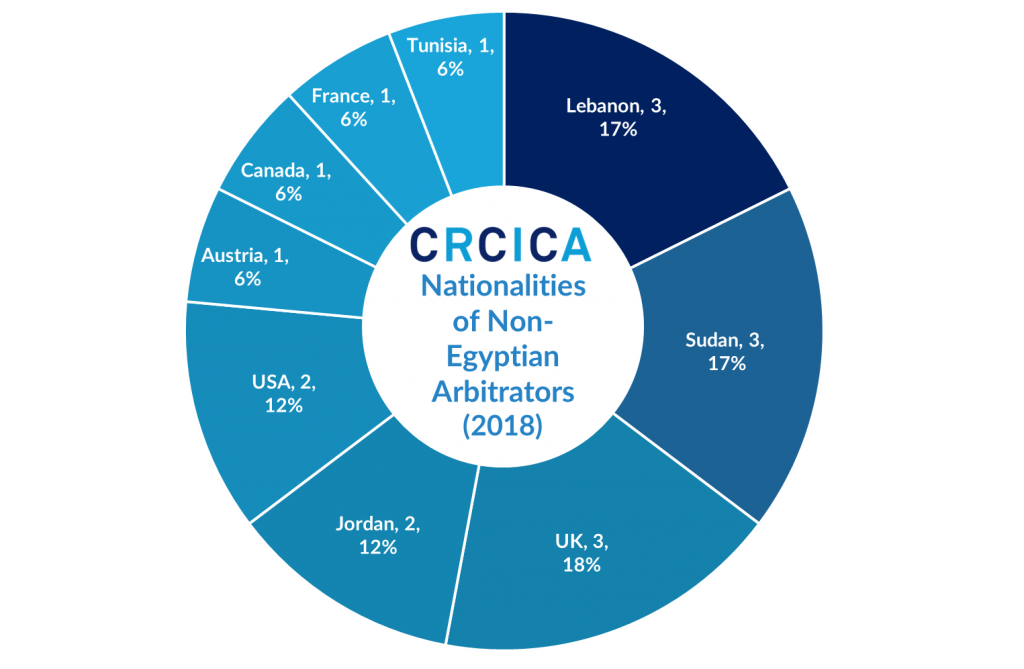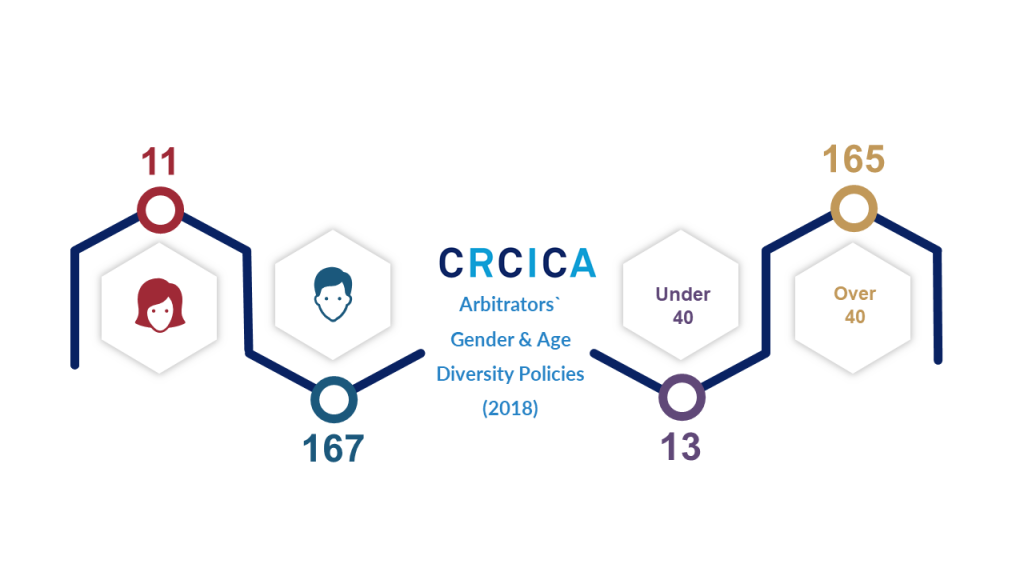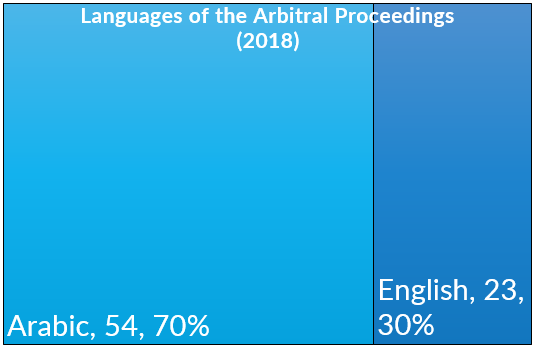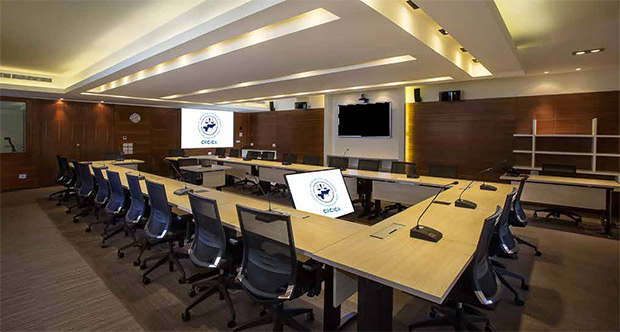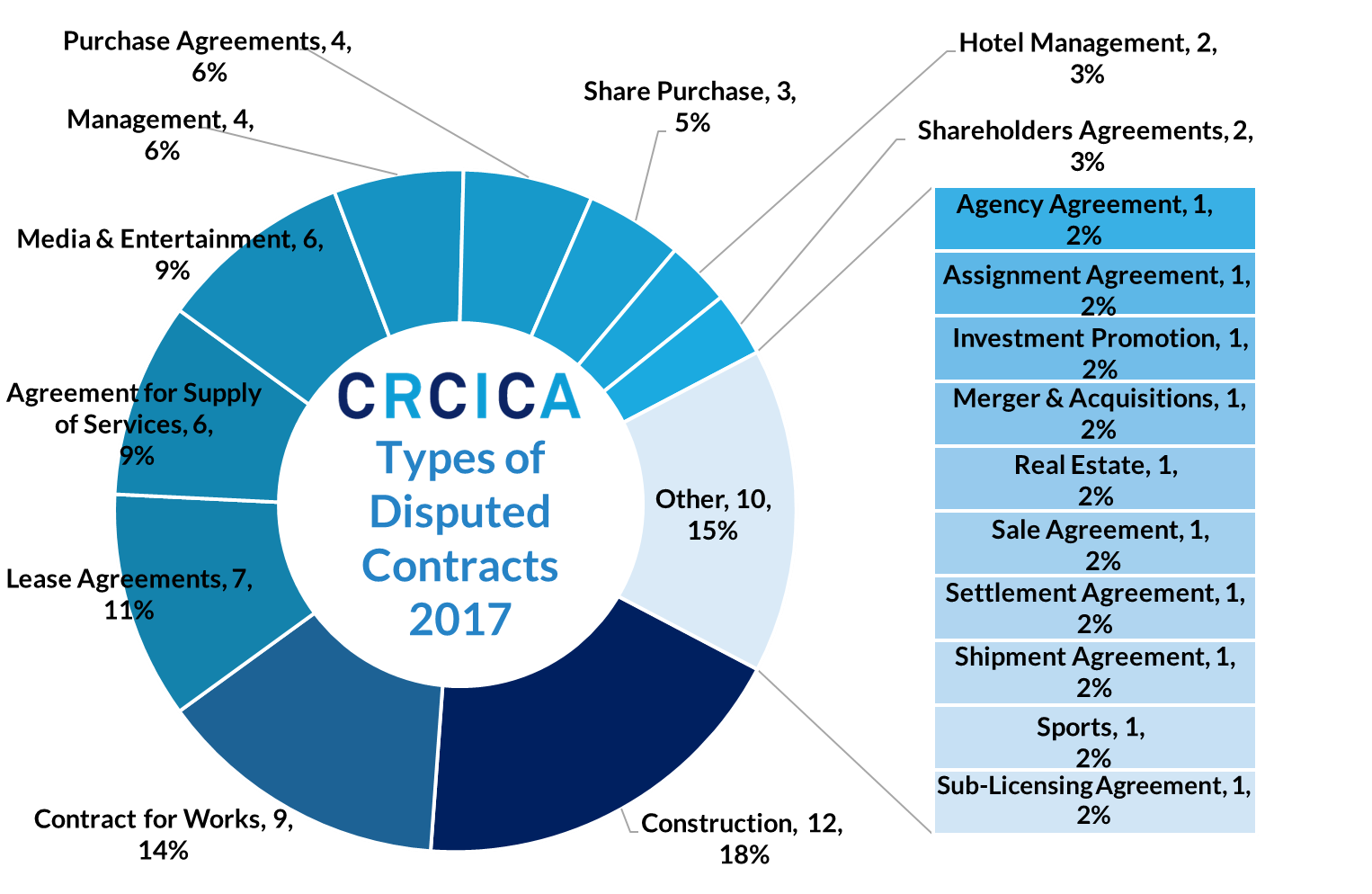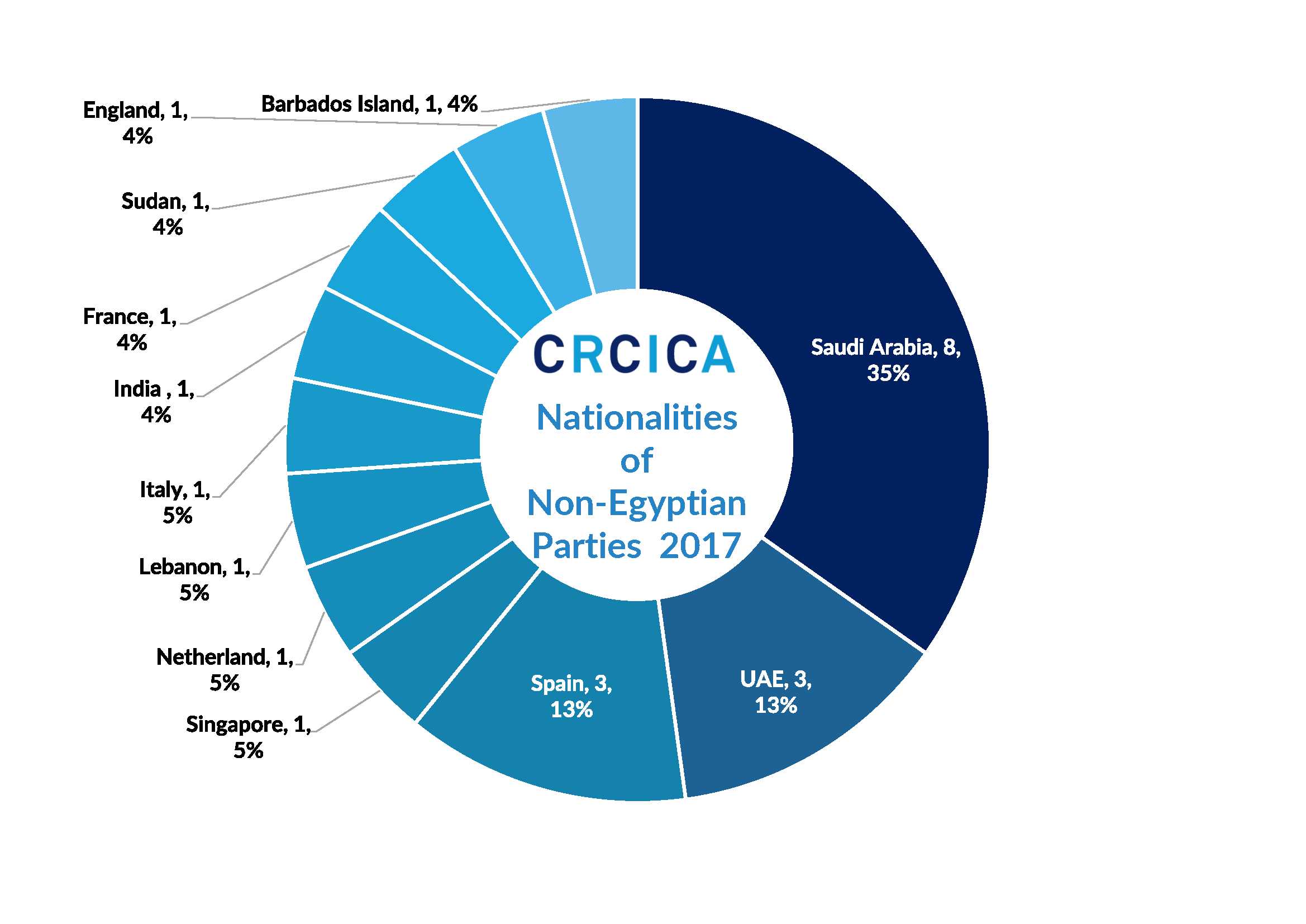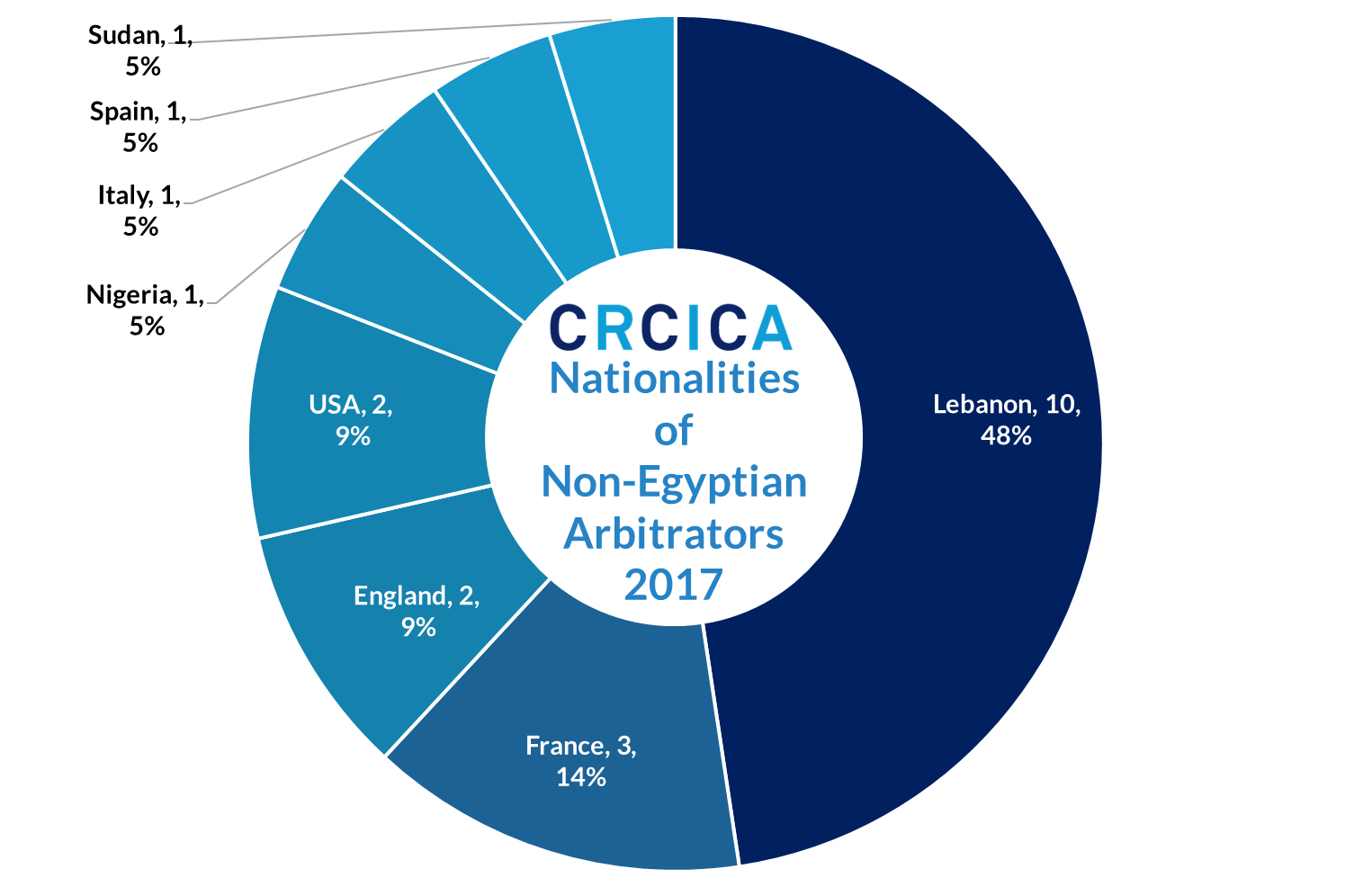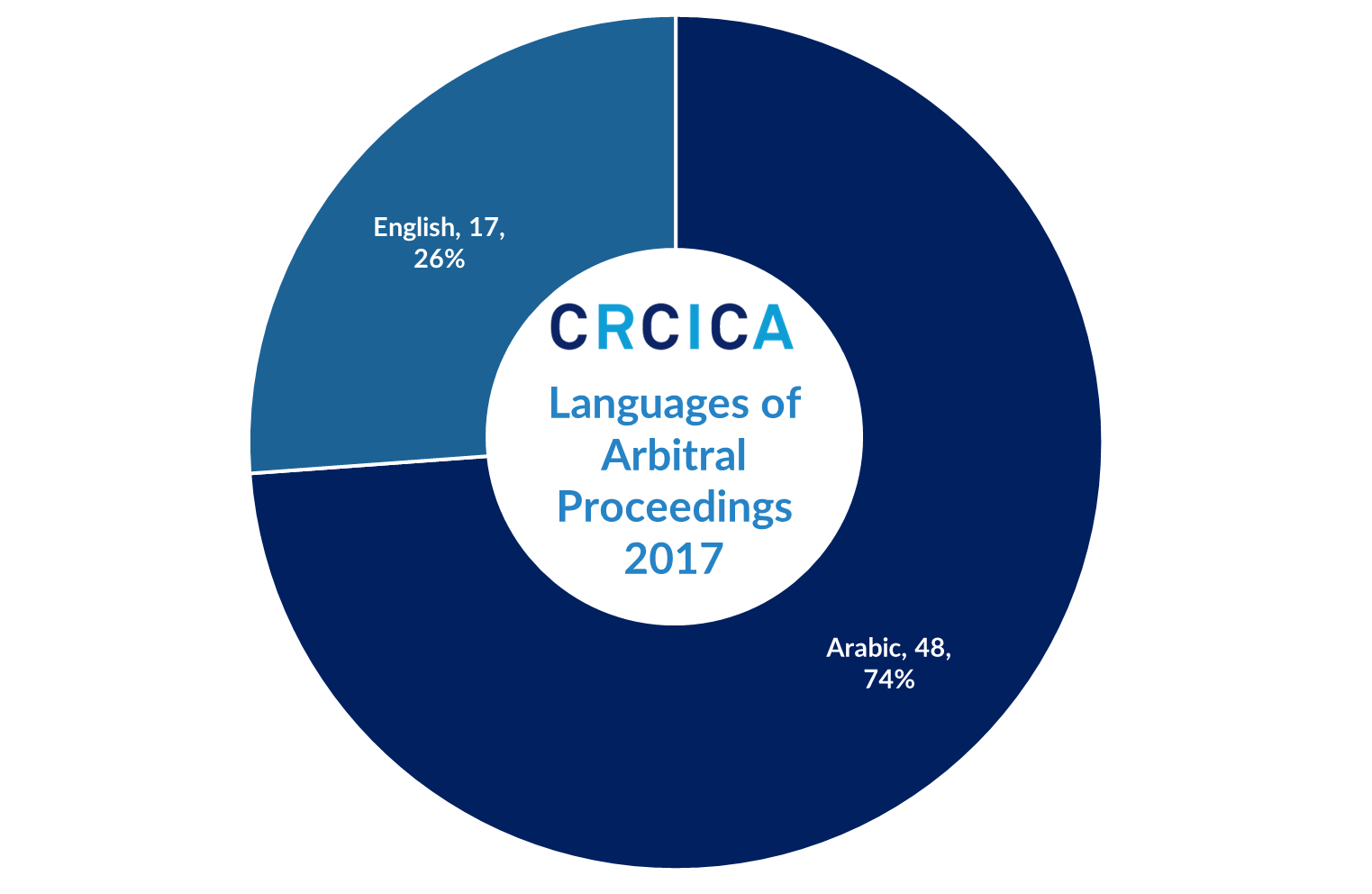The total number of cases filed before CRCICA until 31 December 2020 reached 1452 cases. In 2020, 67 new cases were filed, compared to 82 cases in 2019. Of the 67 cases filed this year, 5 related to ad hoc proceedings, 1 related to a request to have the Centre as an appointing authority and the rest related to dispute under the CRCICA Rules. Most notably, 2020 has witnessed a high number of multiparty proceedings, representing 38% of cases, compared to 11% of cases registered in 2019. Further, 1 mediation case was registered in 2020 compared to 3 in 2019.
The Centre’s caseload during 2020 involved disputes relating to various sectors including: Construction, Corporate Restructuring, Tourism & Hospitality, Real Estate Development, Media & Entertainment, Oil & Gas, Mining and Telecommunications.
Disputes arising from the Construction Sector ranked on top with 32% of the total number of cases, compared to nearly 20% of the cases in 2019. Unlike in 2019, these were followed by disputes arising from Corporate Restructuring agreements, which made up nearly 16.5% of the total number of cases. Tourism & Hospitality disputes ranked third in 2020, representing 13.5% of the total number of cases. Disputes arising from Real Estate Development agreements and Oil & Gas agreements were tied with 6% of the cases each, closely followed by Media & Entertainment disputes at 4.5% of the total number of cases.

The parties to disputes included 28 Non-Egyptian parties. Parties from the United Kingdom ranked at the top of Non-Egyptian parties referring their disputes to the Centre, with 5 parties, followed by parties from Yemen with 4 Parties, and then parties from Italy and Malta, with 3 parties and 2 parties respectively. There were also parties from Bahrain, Belgium, Cyprus, France, Greece, Iraq, Kuwait, Norway, Pakistan, Panama, Saudi Arabia and the UAE. It is worth noting that these conservative figures do not include Egyptian companies owned or ultimately controlled by non-Egyptian shareholders.

2020 also witnessed the appointment of 26 Non-Egyptian arbitrators, with the number of arbitrators coming from Canada and France coming at the top, followed by arbitrators coming from Lebanon, the United Kingdom, Tanzania, the United States of America and Sudan. There were also arbitrators from Italy, Tunisia, Australia, Ireland, the United Arab Emirates and Nigeria.
In 2017, the CRCICA signed the Pledge for Equal Representation in Arbitration, according to which the CRCICA, having due regard to the circumstances of the relevant case, implemented a gender diversity policy when acting as an appointing authority in addition to its implementation of a regional and age diversity policy.

During 2020, 8 female arbitrators were appointed, representing 5% of appointments, compared to 9 female arbitrators in cases registered in 2019. Moreover, 12 arbitrators under 40 were appointed in 2020, representing 7.5% of appointments, compared to 12 arbitrators under 40 appointed in cases registered in 2019.
These numbers and percentages, though both still modest, show a tendency to increase female appointments by the CRCICA as well as by parties and co-arbitrators.
Of the 159 arbitrators appointed in 2020, only 23 were appointed by the Centre, representing just over 14% of all appointments. In exercising its power as appointing authority, the Centre took the opportunity to appoint 9 non-Egyptian arbitrators, as well as 1 female arbitrator and 4 arbitrators under 40.

In 2020, 36 arbitration cases were conducted in Arabic, (i.e. 54%), whereas 31 cases, (i.e. 46%), were conducted in English. The French version of the CRCICA Rules has been issued on 31 March 2017.

During 2020, cases where the sum in dispute does not exceed USD 1million constituted nearly half of the Centre’s caseload. These were followed by cases where the sum in dispute ranges between USD 1million and USD 2million and cases where the sum in dispute ranges between USD 5million and USD 10 million.
The average value of the sums in dispute in cases registered in 2020 amounted to USD 10,296,930. Compared to 2017, 2020 witnessed a 42% relative increase in disputes where the sum in dispute exceeds USD 10million, with a 153% relative increase in disputes where the sum in dispute exceeds USD 50million.
PHYSICAL & REMOTE HEARINGS IN 2020:
Throughout this year, 78 hearings took place using CRCICA’s hearing facilities. 66 of the hearings related to cases brought under the CRCICA Arbitration Rules, 7 hearings related to ad hoc cases administered by CRCICA, 2 hearings related to ICC proceedings, 2 hearings related to ICSID proceedings and 1 hearing related to PCA proceedings.

Of the 78 hearings that took place using CRCICA’s hearing facilities, 11 were held entirely via videoconference, 2 were held entirely via teleconference, 10 were held with partial remote and partial in-person attendance and the remaining 55 hearings were held with in-person attendance of a limited number of people, in compliance with the Centre’s social distancing guidelines.


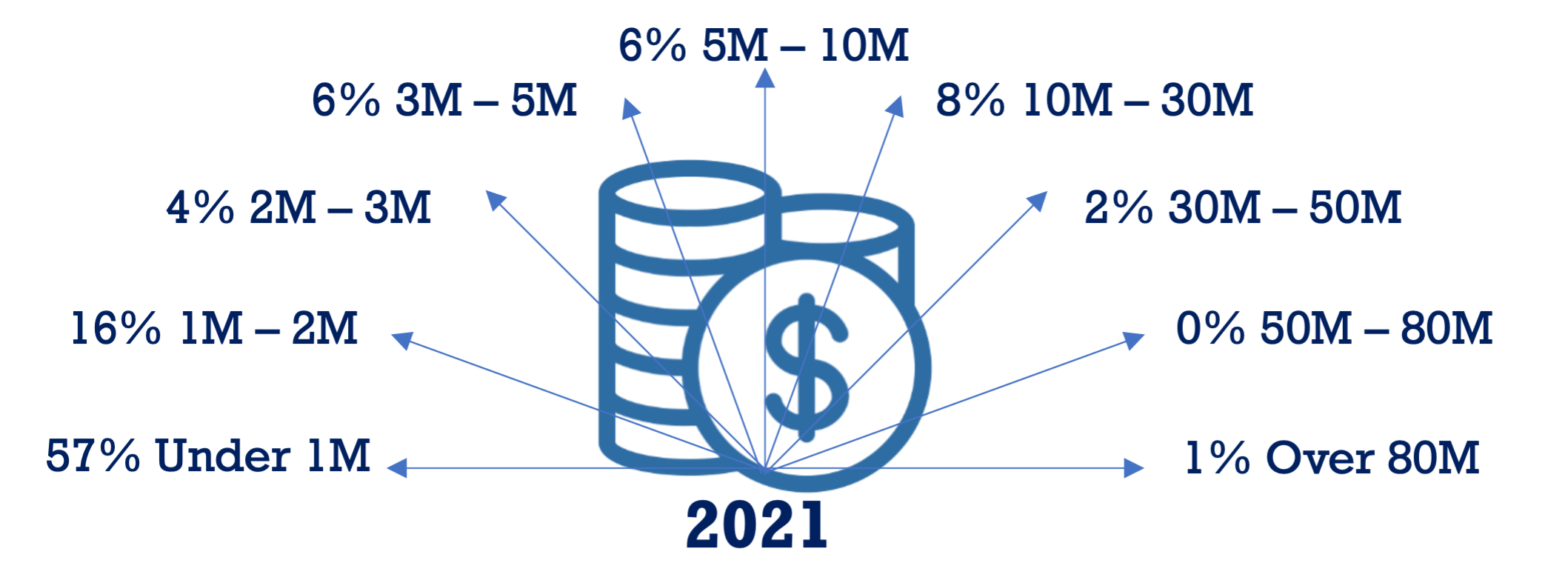
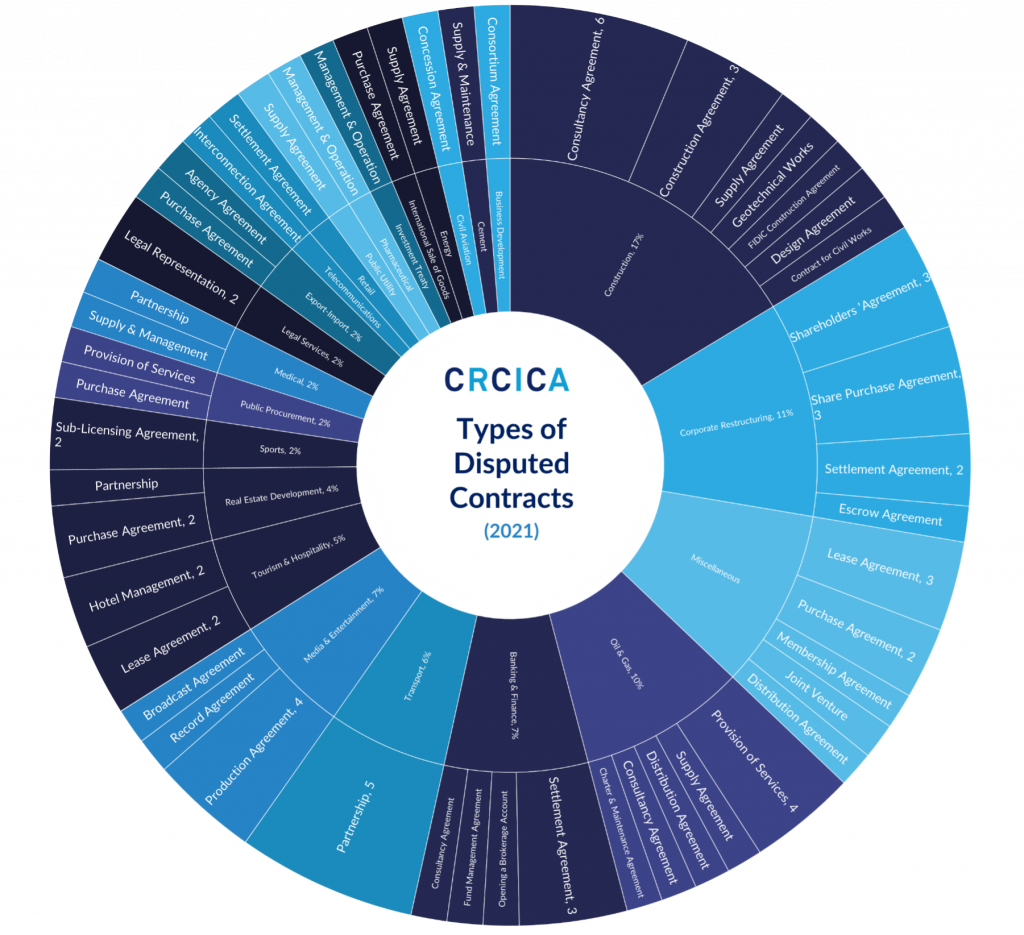
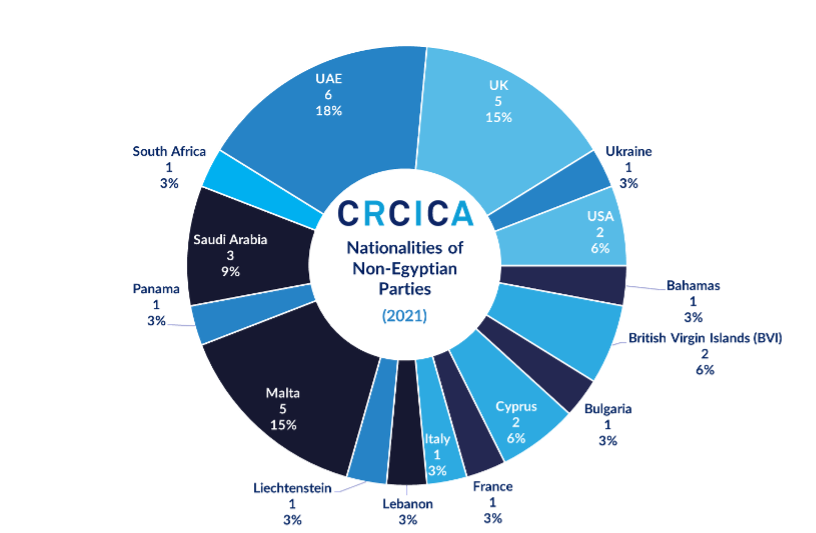
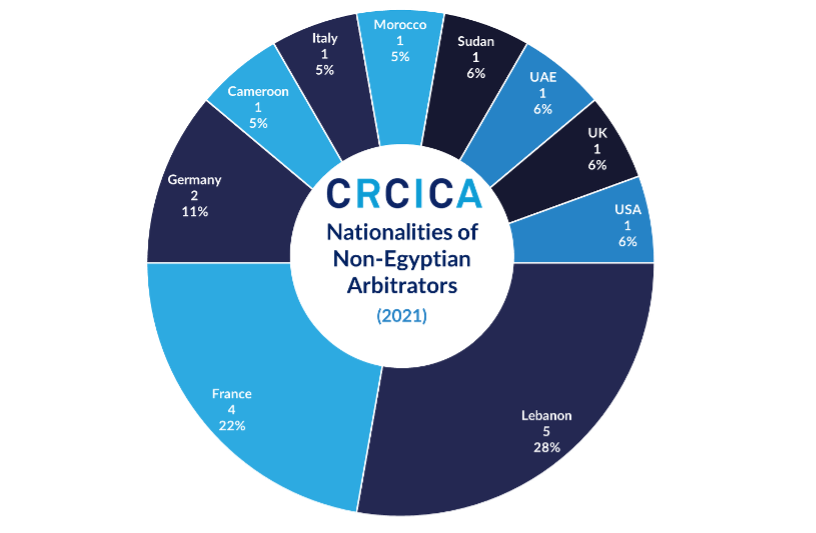
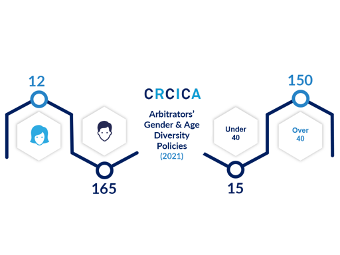 During 2021, 12 female arbitrators were appointed, representing 7% of appointments, compared to 8 female arbitrators, representing 5% of appointments, in 2020. Moreover, 15 arbitrators under 40 were appointed in 2021, representing 9% of appointments, compared to 12 arbitrators under 40 appointed in 2020, representing 7.5% of appointments that year.
These numbers and percentages, though both still modest, show a tendency to increase female appointments by the CRCICA as well as by parties and co-arbitrators.
Of the 165 arbitrators appointed in 2021, only 34 were appointed by the Centre, representing 20% of all appointments. In exercising its power as appointing authority, the Centre took the opportunity to appoint 7 non-Egyptian arbitrators, as well as 4 female arbitrators and 3 arbitrators under 40.
During 2021, 12 female arbitrators were appointed, representing 7% of appointments, compared to 8 female arbitrators, representing 5% of appointments, in 2020. Moreover, 15 arbitrators under 40 were appointed in 2021, representing 9% of appointments, compared to 12 arbitrators under 40 appointed in 2020, representing 7.5% of appointments that year.
These numbers and percentages, though both still modest, show a tendency to increase female appointments by the CRCICA as well as by parties and co-arbitrators.
Of the 165 arbitrators appointed in 2021, only 34 were appointed by the Centre, representing 20% of all appointments. In exercising its power as appointing authority, the Centre took the opportunity to appoint 7 non-Egyptian arbitrators, as well as 4 female arbitrators and 3 arbitrators under 40.
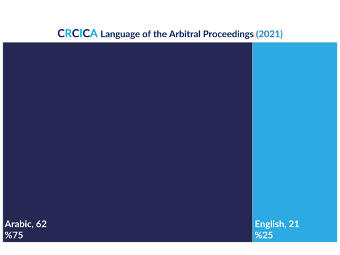 In 2021, 62 arbitration cases were conducted in Arabic, (i.e. 75%), whereas 21 cases, (i.e. 25%), were conducted in English. The French version of the CRCICA Rules was issued on 31 March 2017.
In 2021, 62 arbitration cases were conducted in Arabic, (i.e. 75%), whereas 21 cases, (i.e. 25%), were conducted in English. The French version of the CRCICA Rules was issued on 31 March 2017.
